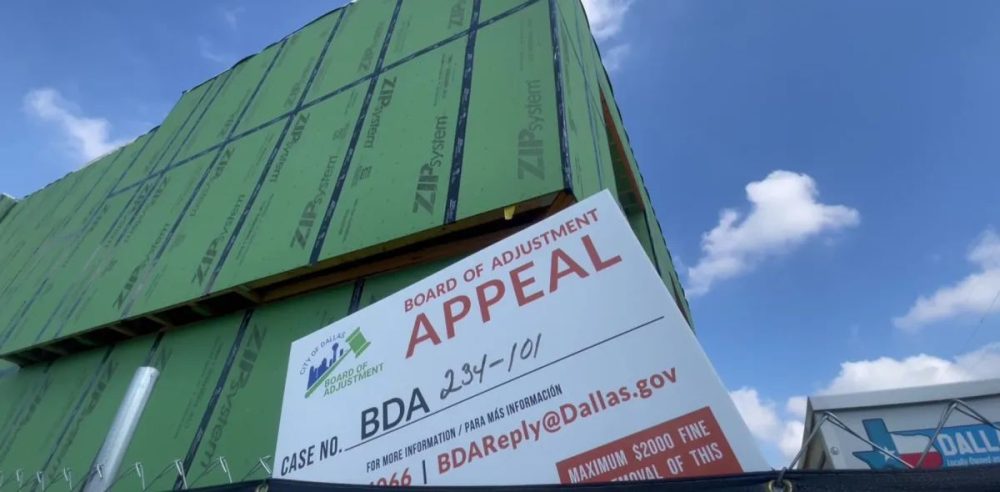Earlier this week, the Dallas Board of Adjustment overturned a stop-work order on an Elm Thicket duplex initially issued by a City building official.
The panel disagreed with the official’s stop-work issuance initiated earlier in the year. The City implemented the order, citing that the structure, a duplex, was constructed on a lot zoned for a single-family property, and the building exceeded the allowable footprint.
Since the lot had been a duplex in the past, the Board concluded that the new zoning rules, which became active in 2022, did not apply. While construction can continue, the builder will still have to spend $88,000 reducing the height of the duplex and converting the roof into a pitch-style version.
The zoning changes from 2022 stem from efforts of local residents in Elm Thicket to control what they saw as a saturation of large buildings in the neighborhood, resulting in a reduction of green space and a proliferation of flat roofs and duplexes.
Following the changes, the City failed to update the maps used for issuing permits. As previously detailed in The Dallas Express, 19 building permits were mistakenly issued but later flagged for violating zoning restrictions despite some of the projects having already been completed. It was then that builders were ordered to halt work.
“This is one of Dallas’ few remaining Freedman’s communities. Ellum Thicket fought for the changes to PD67 to preserve the character and history of our neighborhood. In this entire mess, the neighborhood is the only one who did everything right,” resident Amelia Mimi Perez said, per Fox 4.
“The soul-crushing fact that my neighbors live with on a daily basis is that we all know that if these same structures had been built in Preston Hollow under the same circumstances, those stop-work orders would have been upheld at that first meeting,” she said.
For their part, the builders say making the changes desired by the neighborhood would be too costly and end up bankrupting them.
“We didn’t make the error. It seems like we’ve spent a lot of time on what my client should know and when he should have known it. But I would argue that the city staff is the party that has the higher burden level and that is paid. You know, building inspection runs on full cost recovery. They paid for a professional service that did him great injury,” said Dallas Cothrum, who represents the duplex’s builder.


